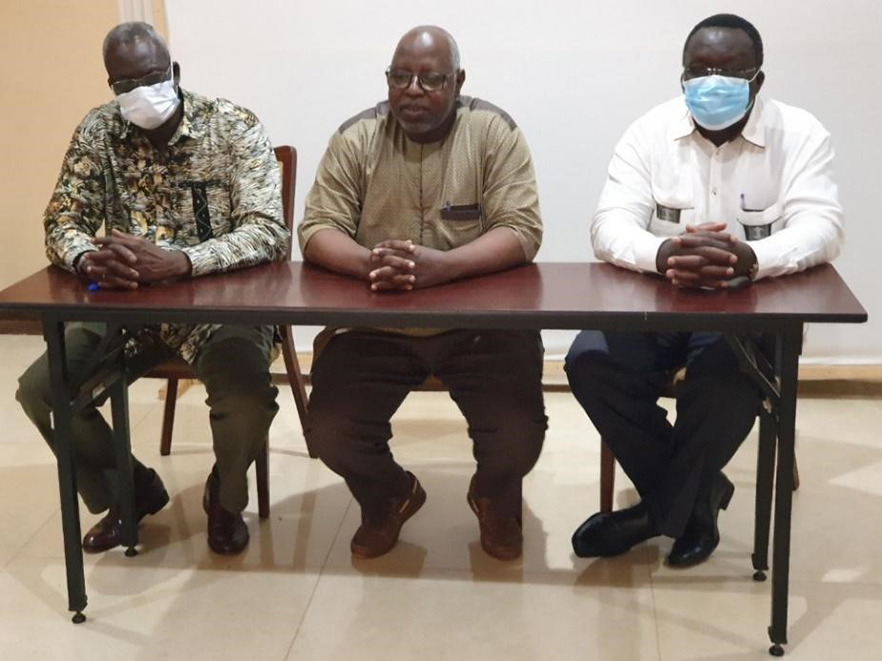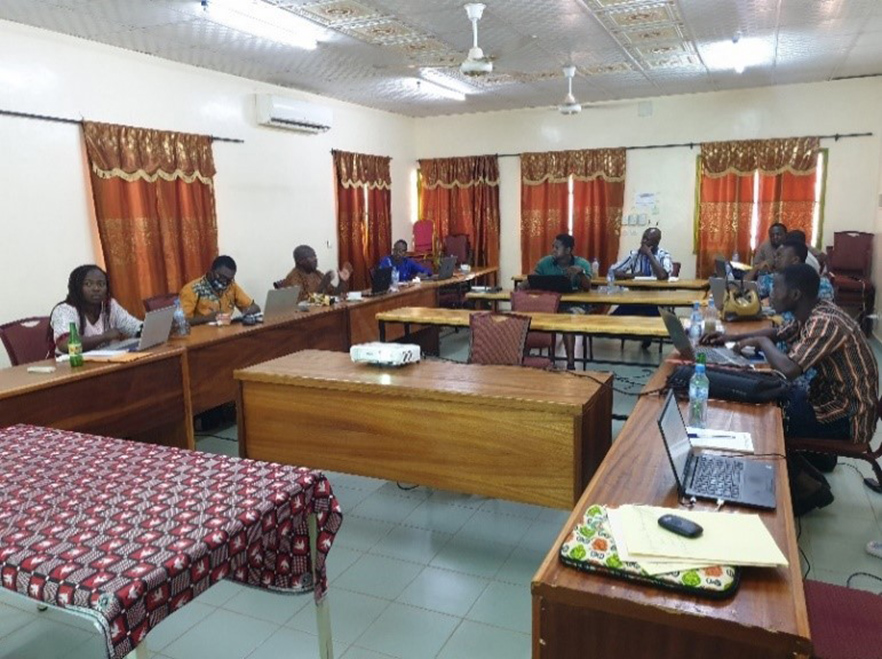Enabling the rational use of antimicrobials in the livestock sector in Burkina Faso
Pour lire cet article en français, veuillez cliquer ici.
The livestock sector in Burkina Faso is dynamic and contributes to more than 18% of the gross domestic product, providing employment opportunities for many stakeholders in urban and rural settings.
Like the human sector, the livestock sector suffers from antimicrobial resistance (AMR)-related issues. Often, prescription, storage, and procurement of antimicrobials is done by one person who distributes them to farmers who don’t have the basic knowledge on antimicrobials and their use. Additionally, the use of antimicrobials as a growth promoter is a challenge in the country.
Livestock keepers in Burkina Faso, like in many other Sahelian countries, practice an extensive and transhumant farming method. For these reasons, it becomes difficult for people to access centers where their livestock can receive treatment, leading to self-medication by farmers who use drugs such as tetracyclines, an antimicrobial used to treat respiratory infections for livestock, without performing a proper verification of the quality and frequency of use of these antimicrobials. These practices represent a great danger in combatting AMR.
To fight against this threat, the USAID Medicines, Technologies, and Pharmaceutical Services (MTaPS) program is supporting Burkina Faso to promote the rational use of antimicrobials in the livestock sector.

National stakeholders during the finalization of guidelines of the rational use of antimicrobials in the livestock sector. Left to right: Dr. Joseph Savadogo, Director General of Veterinary Services; Dr. Adama Maiga, Technical Advisor at the Ministry of Animal Resources and Fisheries; Dr. Henri Kaboré, MTaPS Country Program Director (Photo credit: MTaPS)
Supporting the approval of national guidelines
Although the country has laws on animal health, there isn’t a framework regulating the rational use of antimicrobials.
Supporting the Ministry of Animal Resources and Fisheries, MTaPS worked to develop guidelines on the rational use of antimicrobials in the livestock sector that would be useful for all stakeholders working under the One Health Platform, including human and animal health, agriculture, environmental, and research professionals. These guidelines are designed to respond to several objectives, including:
- Compiling all rules and regulatory provisions related to antimicrobials at the national and regional level within the West-African Economic and Monetary Union,
- Ensuring compliance with general principles of rational antimicrobials use, such as the marketing authorization, the obligation to perform a diagnosis by a health professional, drug categorization, and the enforcement of the prescription rules,
- Defining roles and responsibilities of all stakeholders involved in the implementation of the rational use of antibiotics.
On December 9, 2020, the stakeholders involved in drafting the national guidelines on the rational use of antimicrobials met to approve this document — a first in the livestock sector and a great pride for the country. Every person including Dr. Boubacar N’Paton Sie, Veterinarian at the Directorate General of Veterinary Services (DGSV), and Dr. Sayouba Ouédraogo, General Secretary of the Private Veterinarian Association (COVEP) of Burkina Faso praised the introduction of these guidelines. They both acknowledged MTaPS’ efforts of supporting the country in the development, promotion, and dissemination of the guidelines.

Plenary session during the finalization of the training package for the rational use of antimicrobials. Photo credit: Dr. Henri Kaboré
Helping stakeholders understand and use the guidelines
Although the guidelines have been completed and approved, the Ministry and MTaPS had to help all stakeholders to be able to take ownership of its content.
To do so, a training package was developed to present the guidelines on the rational use of antimicrobials. On May 17-18, 2021, a 12 people workshop was organized to finalize the training package in Ziniaré (Plateau Central region). Participants included members of the DGSV, the National Veterinary Council of Burkina Faso, and the Private Veterinarians Association. Thanks to this workshop, four documents, including one training manual, six modules, two facilitators and participants’ guides were finalized.
Following the development of these documents, three training of trainers took place between June and August to build the capacities of veterinarians and livestock technicians. All four documents were distributed during these 3-day workshops. 42 livestock technicians from all 45 provinces, at the exception of 3, and 15 Veterinarians from 13 regions and both public and private sectors participated in the training. The objective of these training sessions was for each province and region to benefit from this new package so the outcomes of these activities could be sustainable and that all Burkinabe involved in the livestock sector can take advantage of the guidelines on the rational use of antimicrobials.
“The problem of AMR is a global preoccupation. […] USAID-MTaPS enabling veterinarians to attend this training, played an important role and we can only congratulate them and recommend a continued support […] so that all actors can benefit from this knowledge.” -Dr. Charles Mandé, President of the National Veterinary Council of Burkina Faso